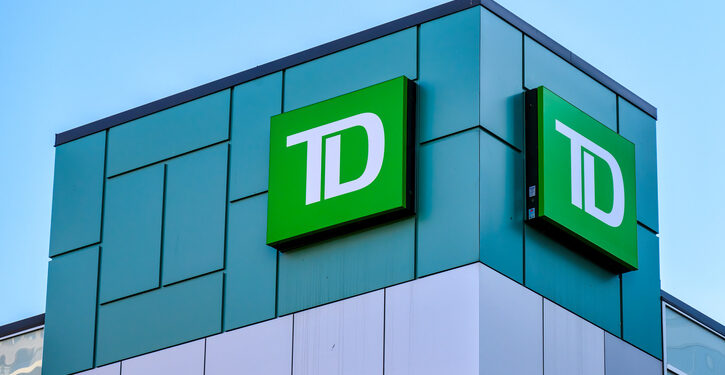On October 10, U.S. authorities announced that TD Bank agreed to pay $3.1 billion in penalties and pled guilty to violations of the Bank Secrecy Act (BSA), the nation’s primary anti-money laundering (AML) law. TD Bank will pay $1.8 billion in penalties to resolve the Department of Justice’s (DOJ) investigation and $1.3 billion to the Department of the Treasury’s Financial Crimes Enforcement Network (FinCEN).
The $1.3 billion penalty is the largest in FinCEN history, where the recently established AML Whistleblower Program is bolstering the agency’s enforcement efforts. The $3.1 billion penalty is the largest ever under the BSA.
According to FinCEN, “TD Bank admits that it willfully failed to implement and maintain an AML program that met the minimum requirements of the BSA and FinCEN’s implementing regulations.”
For example, “TD Bank facilitated over $400 million in transactions for Da Ying Sze (Sze), who pled guilty to money laundering in 2022 for his role in conspiring to hide proceeds of narcotics trafficking,” according to FinCEN.
“The vast majority of financial institutions have partnered with FinCEN to protect the integrity of the U.S. financial system. TD Bank did the opposite. From fentanyl and narcotics trafficking, to terrorist financing and human trafficking, TD Bank’s chronic failures provided fertile ground for a host of illicit activity to penetrate our financial system,” said Deputy Secretary of the Treasury Wally Adeyemo.
“For over a decade, TD Bank allowed its AML program to languish, making TD Bank a target for illicit actors—including its own employees,” added FinCEN Director Andrea Gacki.
The DOJ further details that “TD Bank’s AML failures made it ‘convenient’ for criminals, in the words of its employees. These failures enabled three money laundering networks to collectively transfer more than $670 million through TD Bank accounts between 2019 and 2023.”
“For nearly a decade, TD Bank failed to update its anti-money laundering compliance program to address known risks. As bank employees acknowledged in internal communications, these failures made the bank an ‘easy target’ for the ‘bad guys.’ These failures also allowed corrupt bank employees to facilitate a criminal network’s laundering of tens of millions of dollars,” said Principal Assistant Attorney General Nicole M. Argentieri, head of the Justice Department’s Criminal Division.
The AML Whistleblower Program offers monetary awards and anti-retaliation protections to whistleblowers who report money laundering violations, including violations of the BSA, as well as sanctions evasion.
Originally established in 2021, the AML Whistleblower Program was reformed to be a best-practice whistleblower award program in December 2022. At the beginning of 2024, leading whistleblower attorney Stephen M. Kohn wrote that the program would have a big impact in 2024.
“The Anti-Money Laundering Whistleblower Improvement Act has potential to be the most effective transnational anti-corruption law on the books,” wrote Kohn in an op-ed for Bloomberg. “In 2024, the law, and the AML Whistleblower Program it established, should start to deliver on this potential as whistleblower award programs continue to play a more central role in US global anti-corruption efforts.”
In May, FinCEN Director Andrea Gacki highlighted the success of the AML Whistleblower Program to date, noting that has “received over 270 unique tips” and “many of the tips received have been highly relevant to many of Treasury’s top priorities.”
According to Kohn, the rulemaking process for the AML Whistleblower Program will be critical in determining its efficacy. He has written extensively about how the rules need to work for international whistleblowers.
The National Whistleblower Center, where Kohn serves as Chairman of the Board, has issued an Action Alert calling on Treasury and FinCEN to pass strong rules for the AML Whistleblower Program.
Take Action:
Call On FinCEN To Enact Rules that Align with Anti-Corruption Priorities




